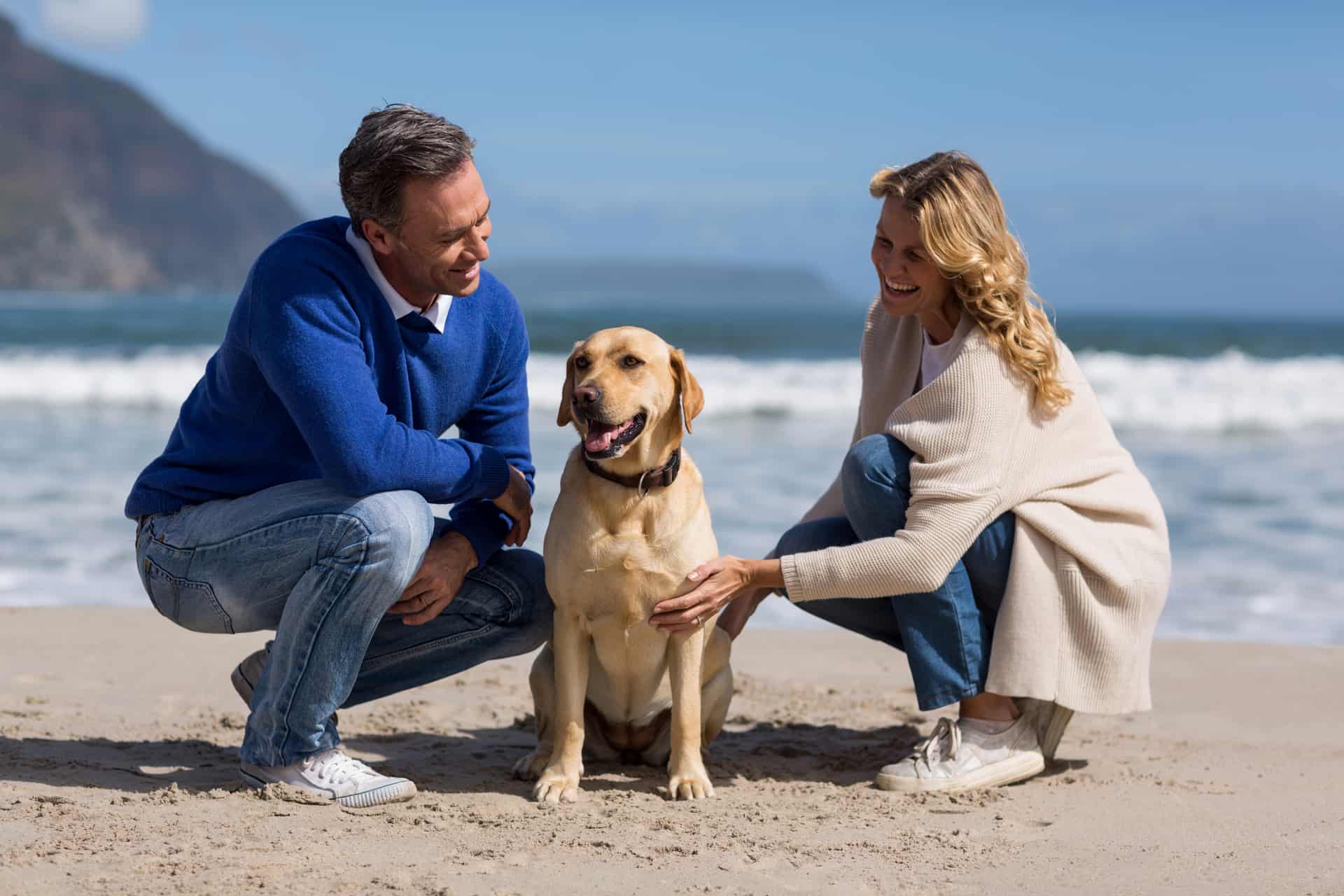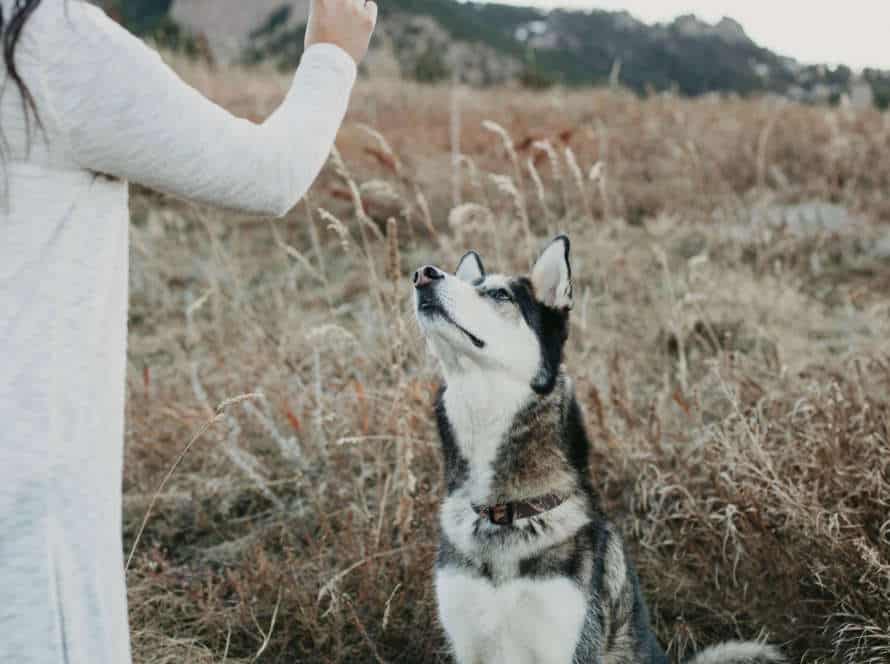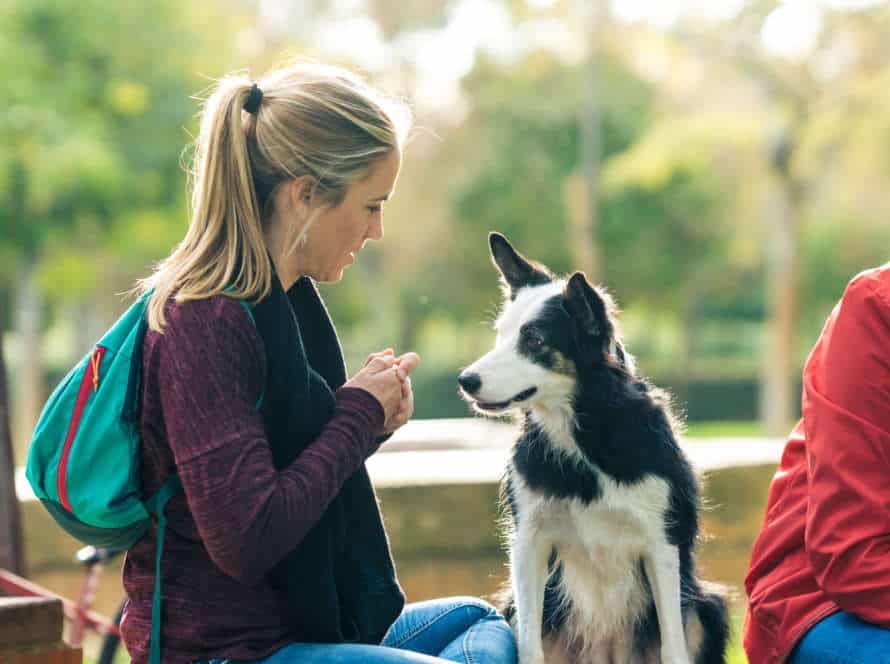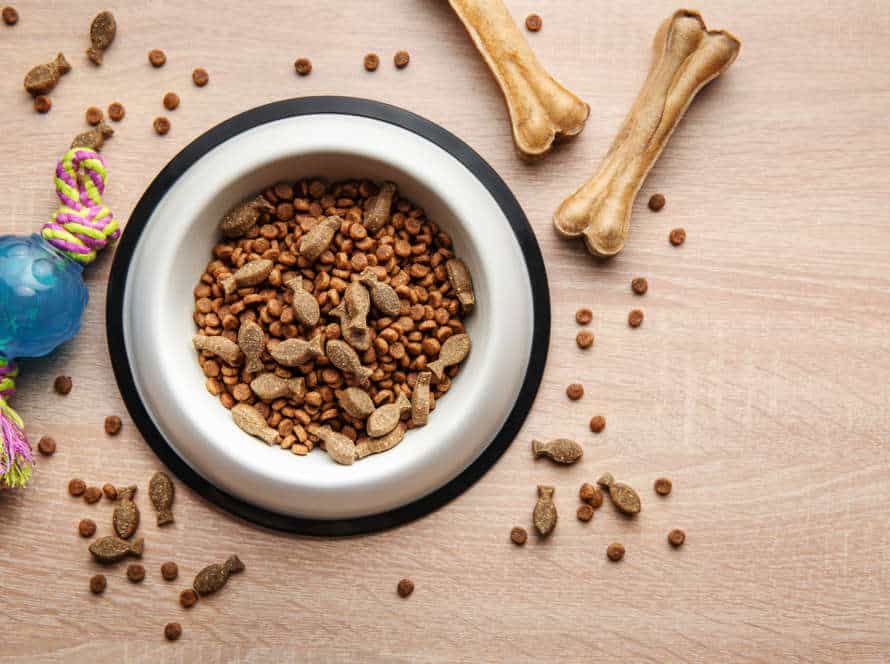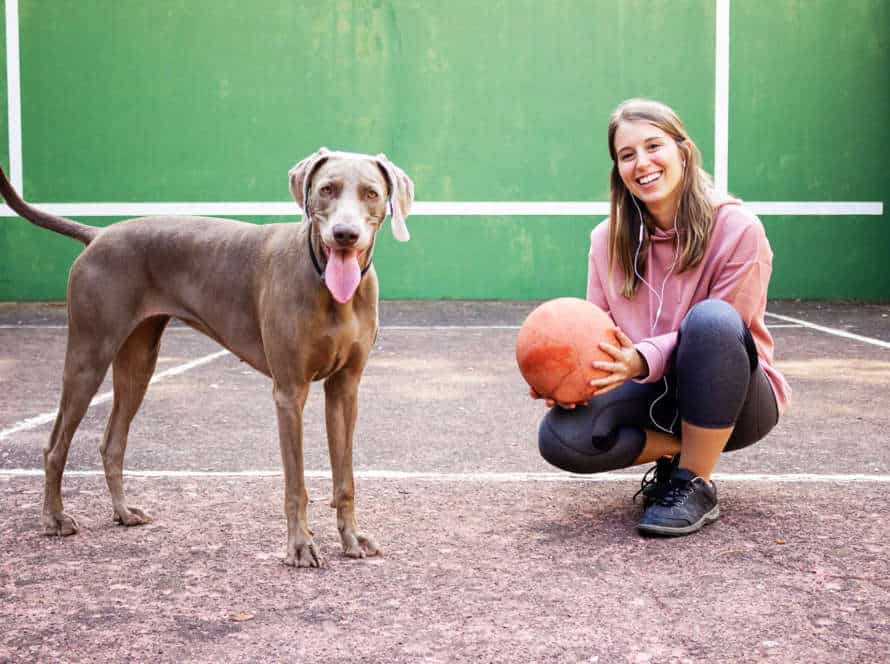Trust in Canine Relationships: How It Affects Your Dog’s Life
Trust is key in dog relationships. It affects their mental and social health, and overall life quality. When they trust their owners, they are more content, relaxed, and happier. Plus, they bond better and feel less anxious with new situations.
Contrarily, no trust can lead to aggression and behavioral issues, that worsen without proper treatment.
To create trust, be consistent, understand them, and reward them. Give them space and respect their boundaries.
Ultimately, trust is essential for a better life for you and your canine buddy.
Outline-
Trust is key in any dog-human relationship. It builds the foundation of your bond and affects their health and wellbeing. A strong bond based on trust brings better obedience and less destructive behavior, decreasing the risk of depression and anxiety.
To create trust, communicate with your pup in a way they understand. Be consistent with commands, rewards, and routines. Avoid punishment-based training and set clear boundaries.
Provide ample socialization, exploration, nutrition, and exercise. This will increase their confidence levels and aid in strengthening your bond.
Trust can take time to establish, but once it’s there, it can transform your dog’s behavior, health, and happiness.
What is Trust in Canine Relationships?
Trust is key for a good human-dog relationship. We build trust through positive reinforcement and obedience training. This trust is the foundation of a strong bond that grows over time. In this article, we will explore what trust in canine relationships means, and how it impacts your pup’s life.
Understanding your dog’s trust needs
Trust is a must for any relationship, including a pup and their owner. Building trust takes time and effort. Knowing your pup’s trust needs is key to having a happy and healthy bond. Here are tips:
- Consistency is essential – Set rules and reward positive behavior.
- Treat them with love and respect – Show kindness and give them space.
- Pay attention to cues – Notice their body language to understand their needs.
Put time and effort in and you can have a trusting, loving bond that’ll last forever.
Factors that affect trust in dogs
Trust is a must for your pup’s contentment and wellness. A few aspects can shape your pup’s trust in you. These include:
- Consistency: Dogs depend on constant routines and behaviour from their owners to feel safe and cultivate trust.
- Training: Right training creates a powerful basis of trust between you and your pup, encouraging positive and foreseeable behaviour and lessening negative ones.
- Body Language: Canines talk through body language. Paying attention to their signals and answering suitably strengthens trust and understanding with your pet.
- Experience: Good experiences with you and others, such as socialization and being exposed to new people and situations, help your pup develop trust and faith.
- Trauma: Unfavourable experiences, like abuse or neglect, can really affect your pup’s trust in you and others.
Pro Tip: Creating trust with your pup requires time, endurance and consistency. Focus on positive encounters, correct training, and straightforward communication to cultivate a strong bond and enduring trust between you and your furry pal.
Signs of trust in dogs
Trust is essential in canine-human relationships. There are signs that a dog trusts their owner.
For example, eye contact. A dog looking into their owner’s eyes suggests trust and affection.
Another sign is leaning. A dog leaning against their owner implies they feel secure and comfortable.
Also, licking. If a dog licks their owner, it means they trust and care for them.
Plus, following. When a dog follows their owner, it displays faith in the owner’s judgement.
A strong bond of trust leads to a more enjoyable life for your pup.
Remember: consistency, respect, and positive reinforcement are important to build trust.
Importance of Trust in Canine Relationships
Trust is super important in canine relationships. It has a big impact on obedience and communication. Plus, it helps you and your pup bond. So, why is trust so important? Let’s find out!
Trust helps your dog have a healthier and happier life. It makes dealing with behaviour issues easier. Trusting relationships are key in canine relationships.
Trust and bonding with your dog
Establishing trust and a strong bond with your dog is essential for a healthy and happy relationship. It takes time and consistency. Here’s why trust matters:
- A dog that trusts you will be more likely to listen and exhibit good conduct.
- Building trust with your pup can lead to a deeper connection and improved understanding of each other.
- A trustworthy owner can provide security to your dog, lowering their stress and anxiety.
- Your dog will be more secure and relaxed around you, increasing joy and affection.
- To build trust, you must be patient, kind, and consistent. Establishing a routine and avoiding sudden movements or actions can help too.
Remember, trust is a two-way street. It requires effort and time to build it up.
Trust and obedience training
Trust and obedience training are very important for building a strong and healthy relationship with your pup. Dogs need trust and obedience to feel secure and connected to you.
Trust is key to your pup’s life; it makes them feel safe and protected. If they don’t have trust, they can become anxious, scared, and even aggressive. This can lead to bad behavior and an unhealthy life.
Obedience training creates trust between you and your pup. It sets clear limits, helps you communicate, and shows what is expected. It also gives mental stimulation and encourages good behavior. This reduces bad behavior and boosts their happiness.
Rewards and positive reinforcement make a strong bond between you and your dog. Most of all, trust and obedience training enhance your pup’s life and deepen your relationship.
Pro Tip: Consistency, patience, and positivity are the best way to succeed in trust and obedience training.
Trust and Mental Health of Dogs
Trust is hugely important for canine mental health. A strong bond of trust between you and your pup can massively improve their quality of life. Here’s why:
- Better behaviour – Fido will be less scared and more obedient.
- Easier socialization – Trust enables your dog to get along with strangers and other animals.
- Improved cognitive function – Trust and affirmations help dogs learn and remember better.
- Lower stress – A trusting relationship reduces stress levels, which benefits their physical and mental wellbeing.
Building trust takes time, consistency and rewards. Remember, it works both ways – your dog needs your trust too.
Building Trust in Canine Relationships
Building trust is key in canine relationships. A trusting bond between a pup and its human is fundamental for a long-lasting, healthy connection. This trust creates comfort, safety and understanding for both. In this article, we will explore how to bolster trust for a better life for both dog and owner.
Positive Reinforcement Training
Positive reinforcement training is a great way to train dogs. Rather than punishing unwanted behavior, this method rewards desired behavior. It builds trust between humans and canines and has a positive impact on a dog’s life.
Rewards such as treats, praise, and toys are used to reward good behavior. This creates a bond of trust and understanding and leads to a loving relationship.
Positive reinforcement allows dogs to learn at their own pace and feel safe in new environments. Trust between humans and canines is very important for a dog’s wellbeing.
Pro Tip: Be consistent when rewarding good behavior. Immediately reward your dog when they do something right to reinforce their good habits.
Consistency in training and commands
Consistency is key for strong canine relationships. Dogs need it to feel safe and understand what is expected of them. It also sets boundaries, encourages good behavior, and makes success easier to achieve. Here are tips to maintain consistency:
- Use the same command when training.
- Give rewards and consequences in the same way.
- Everyone in the home should use the same commands.
- Short and frequent training sessions, 2-3 times per day.
This consistency will improve your dog’s behavior and strengthen your bond through trust and respect.
Understanding your dog’s body language
Knowing your pup’s body language is vital in building, and keeping, the trust between you two. It affects your pup’s life! Here are some indicators to look out for:
- Tail Wagging: Not all swish-swishes mean happiness. A low, slow wag may mean fear, while a fast tail wag could be excitement.
- Ears: Take notice of your pup’s ears as they can show their mood. Loose ears mean relaxed pup, while perked-up ones could signal alertness or aggression.
- Posture: Your pup’s stance can tell you a lot about their feelings. A chill pup will have a loose, wiggly body, while a tensed one will be stiff and rigid.
- Eye Contact: Making direct eye contact can be seen as aggressive, while avoiding it shows fear or submission.
Understanding your pup’s body language helps in strengthening your relationship, and creates a bond that goes beyond just obedience.
Overcoming Trust Issues in Canine Relationships
Trust is a must for a successful relationship with your furry companion. For pups, trust is one of the essentials for their wellness. Recognize the signs of trust issues and learn how to conquer them. This article will explain the different types of trust issues and how to repair them.
Fear or Anxiety in dogs
Fearful or anxious dogs can show signs like aggression, loud barking, destructiveness, and not eating. Building trust is the answer to these troubles, and bettering your pup’s life.
Here are 4 tactics to make trust with your doggy:
- Stick to a schedule for feeding, playing, and teaching.
- Make use of goodies, fun things, and kind words as rewards for good behavior.
- Expose them to new humans, animals, and situations to make ’em feel safe and secure.
- Be patient and use only positive methods to teach.
Creating trust with your pup calls for time and effort, but it pays off with a loving, healthy relationship.
Building trust with rescue dogs
Building trust with rescue dogs can be a tough task. But, if you’re patient and consistent, you can help them trust again and build a loving bond. Here are some tips:
- Be dependable with your actions and behaviour around the pup. This builds their confidence.
- Respect their boundaries, don’t force them into overwhelming situations.
- Get to know their past experiences and behaviours that relate to it.
- Use positive reinforcement techniques to make them associate good experiences with you.
- Give them lots of love, time and patience to build trust in you.
It may take time and effort to trust again, but the reward is worth it. You and your furry companion will benefit greatly in the long run.
Working with professional dog trainers to build trust
Trust is essential for a strong bond between you and your pooch. If you have trust issues with your pup, working with a professional dog trainer can help. They’ll evaluate behavior and personality, and customize a plan to address the trust issues. Positive reinforcement techniques will build trust. Consistent training sessions will teach you how to communicate effectively, and your dog will learn to trust and respect you. The built trust will lead to a happier and healthier relationship with your furry friend.
Maintaining Trust in Canine Relationships
Trust is crucial for a successful relationship – especially between humans and dogs. Trust helps your pup to feel safe, secure, and relaxed. It also builds strong bonds and can improve your pet’s behaviour and health. To keep trust in a canine relationship, it’s important to understand the elements of trust and how to nurture it in your bond with your dog.
Continuing positive reinforcement training
Positive reinforcement training is an effective way to build trust with your pup. Consistently use this training even after your dog has learned the behaviour. Use it to help your dog learn new tricks and activities. Reward calm behaviour, like sitting while you get the leash, or waiting patiently while you make breakfast.
Keep a consistent routine, rewards and treats for good behavior, plus lots of exercise and playtime. These will help your bond, and build trust.
Building stronger bonds with your dog
It is essential to form a close and trusting relationship with your pooch. Here are some tips for creating a trusting bond with your dog:
- Consistency is key- Have a steady routine.
- Positive reinforcement- Reward desirable actions with treats, compliments, or playtime.
- Time together- Take your pup out for walks or play.
- Understand body language- Learn your dog’s body language to improve communication.
- Be patient and kind- It takes time and effort to build a strong bond.
Pro Tip: Have fun and cherish the time spent with your pet.
Identifying and addressing trust issues regularly
Trust is the basis of any great relationship. This includes your relationship with your furry companion. Identifying and managing trust issues quickly is vital for keeping a strong connection with your pup.
Signs that your dog has trust issues may include aggression, fearfulness, or avoidance behaviour. If you see any of these signs, act right away!
Certain ways to foster trust in your dog are:
- consistent and positive training
- giving a secure and foreseeable environment, as well as displaying love and consideration consistently.
- Also, getting expert help from a dog trainer or behaviourist can help you deal with more intense trust issues and fortify your bond with your pup.
Remember, trust is a two-way street. Keeping a healthy relationship with your dog requires effort and dedication from both of you.
Frequently Asked Questions
1. How does trust impact my dog’s behavior?
Trust is essential in creating a healthy and happy canine-human relationship. Without trust, dogs may exhibit behavioral issues such as aggression, disobedience, or anxiety.
2. Can trust be rebuilt in a damaged canine-human relationship?
Yes, rebuilding trust is possible but requires patience, consistency, and positive reinforcement training. It may take time, but the effort is well worth it.
3. What are some ways to build trust with my dog?
Some ways to build trust include spending quality time with your dog, consistently meeting their needs, using positive reinforcement training methods, and respecting their boundaries.
4. Can a lack of trust lead to health issues in dogs?
Yes, a lack of trust can lead to stress and anxiety, which can manifest as health issues such as decreased appetite, weight loss, or skin irritations.
5. Can trust be one-sided in a canine-human relationship?
No, trust is a two-way street in any relationship, including canine-human relationships. Dogs must also trust their owners to provide for them, protect them, and understand their needs and boundaries.
6. How can I tell if my dog trusts me?
Symptoms of trust between dogs and their owners include cuddling, playfulness, obedience, and calmness in the presence of their owner. A trusting dog may also make direct eye contact, approach their owner, and wag their tail.

